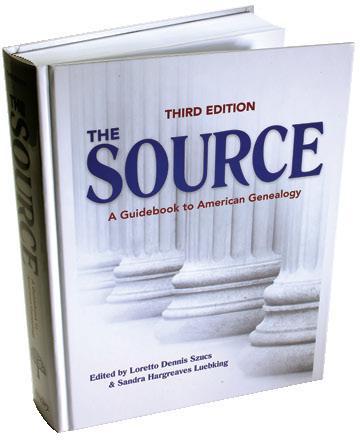Sign up for the Family Tree Newsletter Plus, you’ll receive our 10 Essential Genealogy Research Forms PDF as a special thank you!
Get Your Free Genealogy Forms
"*" indicates required fields
Required Reading: Classic resources you shouldn’t research without.

Hot Off the Press
New books to heat up your family history search.
1 Professor Bryan Sykes, the world’s first genetic archaeologist, takes you on journey exploring the genetic family tree of Britain and Ireland in Blood of the Isles (Oxford Ancestors). You’ll discover the stories of these countries’ genetic makeups, the various ethnic backgrounds they encompass and how you fit into the mix. Read this book to find out if your roots are “pure” or a “genetic cocktail.”
2 Blessing or curse? Online genealogy has become both. We want instant ancestors, but we also want to make sure we’re tracing the right lineages. Finding Your Family on the Internet by Michael Otterson (Silverleaf Press) reveals the bounty as well as the pitfalls of Internet genealogy research and offers a step-by-step guide to verifying the information you find.
3 Find more than 1,000 modern maps from across the globe, plus charts and statistics, in the second edition of National Geographic’s Family Reference Atlas (National Geographic). The book provides political, religious, economic and historical information on your ancestors’ home countries. A comprehensive index helps you pinpoint more than 40,000 locations worldwide.
Pros’ Picks: Genealogy gurus share their reading recommendations.
The Thinker’s Toolkit by Morgan D. Jones (Three Rivers Press)
• Recommended by: David E. Rencher, director of records and information for the Genealogical Society of Utah <www.gensocietyofutah.org>, as well as a 29-year genealogical veteran
• Summary: The author is a former CIA analyst who identifies 14 techniques to structure your data for problem solving, and he discusses ways you can overcome the natural tendency to use trial-and-error methods to solve complex problems. While it’s not a genealogy text, you can apply the principles to many complex problems genealogists address every day.
• Likes and dislikes: The author teaches you how to think differently about problems and solutions. Each technique comes with a practice worksheet, but you need to have the patience to stop and do the worksheets — otherwise, you’ll lose the majority of the book’s power. The examples aren’t genealogical, so I tried to insert my own genealogy-related examples to test the mechanisms the author suggests.
• Behind the scenes: Another genealogist, Stephen K. Kendall, recommended the book to me.
• Lasting impressions: The book has greatly affected the way I structure genealogical data and significantly improved my analytical skills.
• Best bonus: Each of us needs to improve our skills to solve brick-wall problems. How we deal with the data is a key to solving the most challenging genealogical problems, and we can learn that from reading books outside of our field, too.
From the February 2007 issue of Family Tree Magazine.
ADVERTISEMENT

